I have been thinking a lot lately about creating culture… and what forms of communication are required or desirable to aid in this task. I’m thinking about this for Rassak as I look at ways to scale the business (cultural development is vital to growing a people-centric, professional service business).
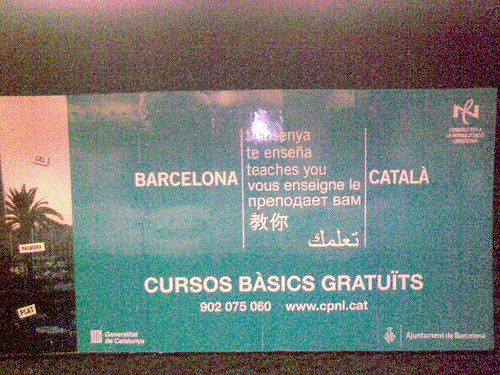
Interestingly… right now I’m surrounded by attempts at creating/transmitting culture. Barcelona is in Catalonia, a semi-autonomous region of Spain with a distinct (and very proud) culture. And the government invests in cultural development on many levels.
Language is one key driver of culture. It’s one of the tools we are using to shape culture at rassak. We’re not pushing a different language entirely (some companies do… would you like a VENTE Latte?) but we are beginning to choose words carefully and create templates for documents filled with language that we believe represents our culture. Since these are templates they not only represent the culture, they help propagate it each time the template serves as the basis for a new document.
Language is a key tool used by the Catalan government too. Check this billboard in the metro for free courses in the language of Catalonia — Catalan. . The government here believes in the power of language to transmit/maintain/develop/share culture.

BTW, this newspaper, el Periodico, began publishing in Spanish here in the 70s.
In the mid-90s it added a second edition in Catalan, giving the paper access to substantial regional government subsidies (per wikipedia).
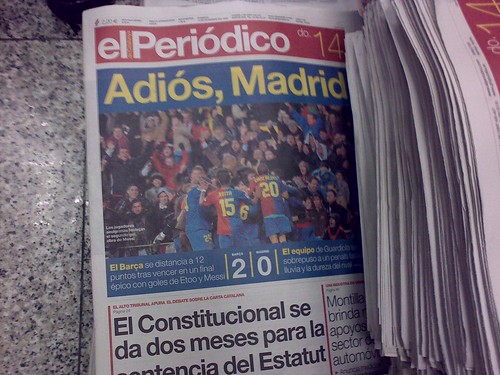
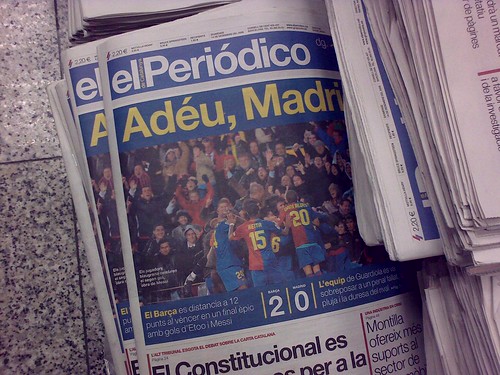

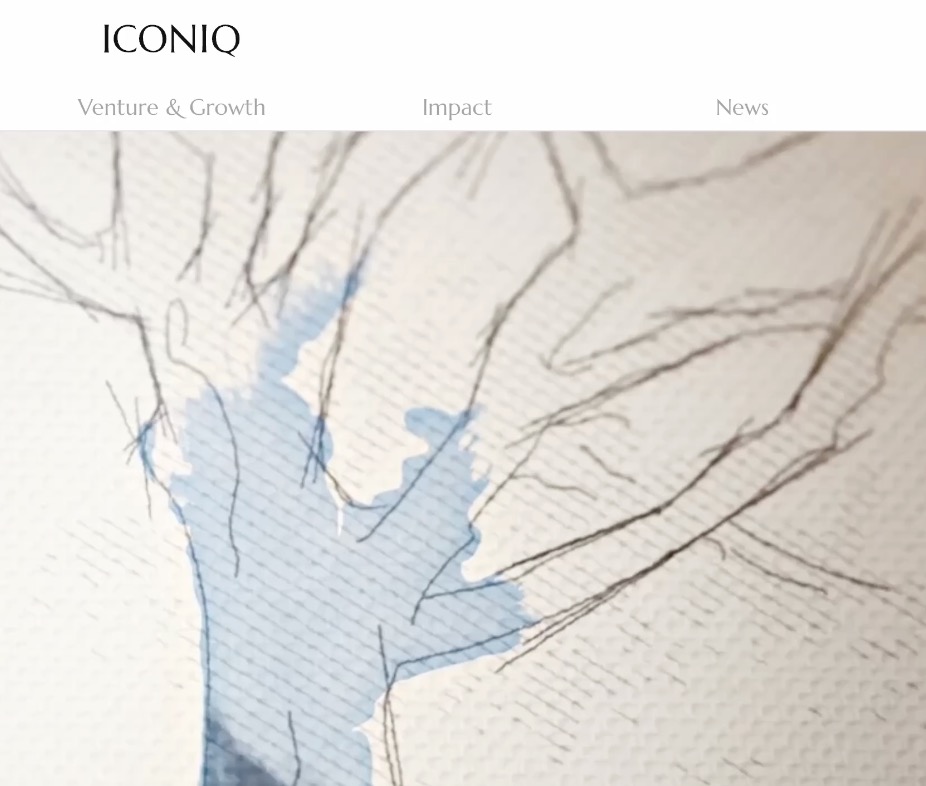
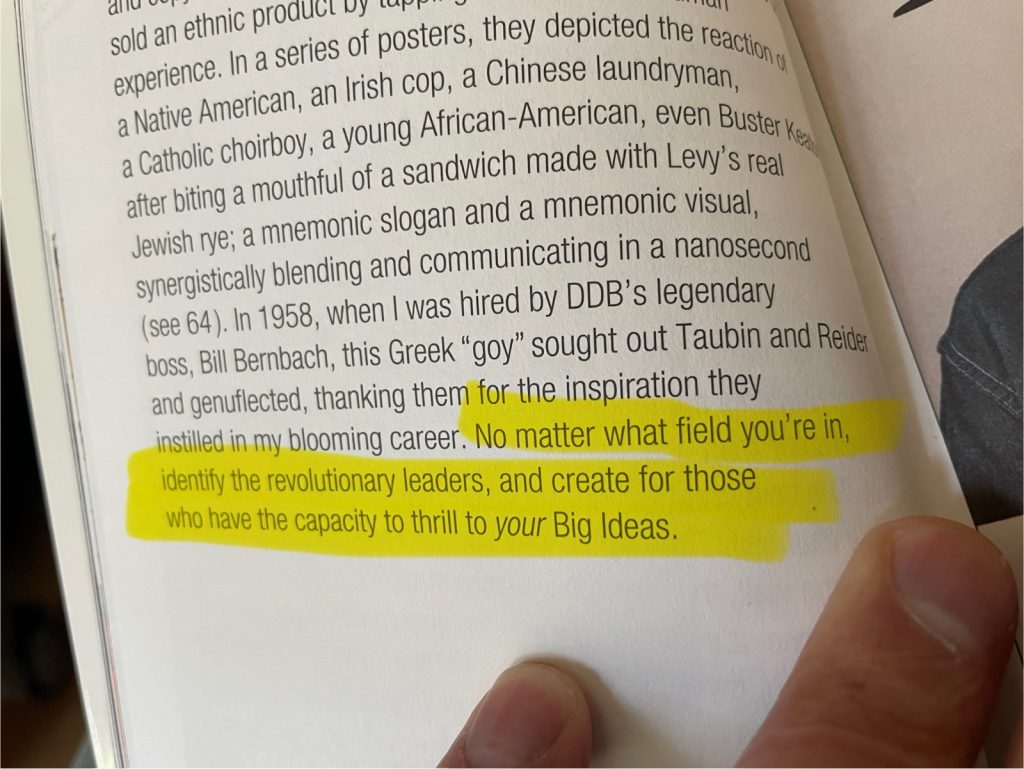
Leave a response
Responses
2 responses
B,
Maybe it’s because my undergraduate major was Rhetoric, but I also think a lot about culture creation and (as a Native American) culture transmission. I enjoy discovering hidden “master narratives” –familial, national, political, organizational. Once the master narrative is adopted, the “language” of the narrative is deployed somewhat spontaneously.
The best example of a hidden “master narrative” (or at least a “stealth” master narrative) I’ve seen comes from Bob Berring, a law professor and the librarian at Berkeley School of Law. At almost every 1L orientation, Bob stands and tells a funny story in which he declares there are really only three types of law students: 1. Skywalkers (people who are just smart and always get it, that you kinda can’t hate because it’s not their fault it all comes so easily to them) and 2. “Redhots” (people who always sit in the first row, raise their hand on every question, and can’t not have something to say) and 3. “Bobs” (people like Bob -also a Berkeley Law alumnus- who thinks they may have been admitted by mistake and are just trying to get along without failing out). The narrative relies on concepts already familiar to the new members of the community. Also the narrative introduces Bob as an equal in the community through the new concept “Bobs.” The unstated logic is something like: If he is just like them and he belongs, then they belong too. (Bob and I are good friends; as much as his personality is Bob-like, he’s really a Skywalker. In fact, he’s a fully fledged Jedi Master. He’s a Yoda.) Bob’s speach is the anti-Harvard “1L” speech from “The Paperchase” and like the “Paperchase Speech” Bob’s speech sets the norms of behavior. The Berkeley Law norm is immediately set at the “Bob” level and it is clear everyone has permission to mildly malign competitive, show-boating “Redhots.” Law students use Bob’s language and those categories throughout their legal education to exercise polite social control. It doesn’t really alter the kind of competitive personalities that law school seems to select for (and that schools like Harvard Law encourage through culture), but it does put social limits the kind of competition that is motivated by massive inferiority complexes. (Possibly the most prevalent, malicious, and least productive type of competition.) Moreover, almost every fellow alum I encounter asks if Bob is still at Berkeley Law and remembers the three types of law students the way most baby-boomers remember the four Beatles.
There are other institutional differences that support the master narrative and it’s slight frown at the mean kind of competition. For example, the school removes almost every opportunity for one student to be compared to another in any meaningful way. Unlike a lot of law schools, grades aren’t publicly posted (not even “anonymously” by student number) and Berkelely Law does not rank it’s students by GPA. Hard to rank by GPA when there aren’t “real” grades. No “A” “B” “C”, but rather a pretty strict curve HH (High Honors to the top 10% of each course), H (Honors to the next 20% of each course) and P (Pass, to the rest of the students in the course). There’s also a rumor about something called a Sub-P (written for some reason as CP on a transcript) that, I suppose mimics a D. And I’ve heard of people failing, but it’s incredibly rare and I have no idea what letter that gets. Not alot amuses me more than watching someone try to make sense of my law school transcript (and I don’t help them either. I just shrug and referr them to my nearly perfect undergraduate GPA). The master narrative that Berkeley Law tells is “All of our alumni are equally great so there’s no reason for anyone to even attempt to differentiate with grades.”
Bob is Mr. Culture Creation at Berkeley Law. He also invented an omnicscient being from outter-space named “Uncle Zeb” of whom students can anonymously ask questions. Uncle Zeb’s question log was a simple binder, kept at the Library Reference desk. Students write questions from “What do you think the Yankee’s chances are this year” to “I have a thing for my Prof” to “What’s the Rule Against Perpetuities anyway?” A couple of days later, the student checks the binder and Uncle Zeb has declared his answer to the student’s question or suggested a course of action — usually hilarious and on point.
Culture is a really hard thing to form/change/get right. I took a whole course on it called “Issues in Communication and the Contemporary Workplace” and it was great discussing all the many factors that go into creating a companies culture and how it can be very deliberate but also form all on its own as well.
My view on changing corporate culture is that it cannot be forced or pushed on employees and that any changes/adjustments you make need to be in consultation with all stakeholders making it fit with what the company stands for.